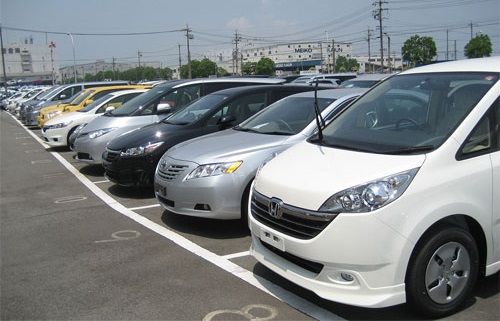
Auto industry players await tax cuts
Some players in the auto industry are anxiously awaiting a reduction in corporate tax and the abolition of the special import levy introduced by the Mahama administration.
The Country Director of the Stallion Group, Mr Mahesh Mahtani, and the Executive Director of Toyota Ghana Limited, Mr Eric Dako, believe that a fulfilment of two of the new administration’s campaign promises would have a positive impact on the auto industry.
“A reduction in corporate tax and removal of the special import levy is excellent. It sends the right signal to investors. Competition is very fierce in Ghana. A reduction in your price brings a lot of benefits.
“Automatically, when the government reduces the import duty on vehicles, the cost goes down for every new vehicle. This benefit goes to the end user who is the consumer.
“It has long-term benefits for the public at large and creates a positive impact generally across the board in the automobile industry,” Mr Mahtani told the Daily Graphic.
The promise
The New Patriotic Party’s (NPP’s) promises as captured in its 2016 Manifesto, are the reduction of corporate tax from 25 to 20 percent, as well as the abolition of the special import levy introduced in July 2013 to increase government revenue and help close the 2013 budget deficit.
The government introduced the special import levy as a temporary measure, but it has remained in force.
Taxes
Currently, the importers, depending on their items, pay between one and three percent on imports which include cars and their parts.
For new vehicles, the taxes vary. It depends on the vehicle and its use—commercial, private or luxury and engine capacity.
Last year, the duty of small vehicles with 1000cc and below, including Hyudai Atos, KIA Picanto and Hyundai i10, was increased from five to 10 per cent.
The move was to cash in on the fast-moving category being patronised for their fuel economy.
But Mr Mahtani said the review of that decision, coupled with the abolition of the special import levy and reduction in corporate tax, will incentivise the industry and benefit consumers.
“When prices of new vehicles go down, the demand should go up. Other secondary benefits include customers buying more new cars than second-hand ones. There is also an indirect benefit for the environment which is more fuel-efficient.
There is also less carbon emission in brand new cars because technology is changing.
“If the duties are reduced, there is the probability that more duty would be collected by the government at the port. A reduction in duty economically deters malpractice at the port. Hopefully, more people will pay correct duties at the port and this increases the revenue for the government,” he added.
He also made a case for a reduction in corporate taxation, saying it would have “immense benefits for the private sector. When corporate taxes go down, our net profitability also goes up. This increases our working capital and leads to expansion in business. It also leads to more employment opportunities, better staff welfare and better conditions of service.”
Trickle effect
Mr Dako also agreed that a reduction in taxes would trickle down to car and part buyers no matter the quantum of reduction.
“We believe that if the reduction is significant enough, it is going to give a lot of customers the purchasing power to buy new cars. If the reduction is something very small, then maybe it might not have an impact on our prices that much.
“If government drops the special import tax levy, we will definitely drop our prices. We don’t mind how marginal it is. If even it is 0.1 per cent, we will also reduce it for the customers to feel it in their pocket,” he added.
“Generally, we all accept that as a country, we need to put taxes on all imports as much as possible, but then the amount is the concern,” he stated.
